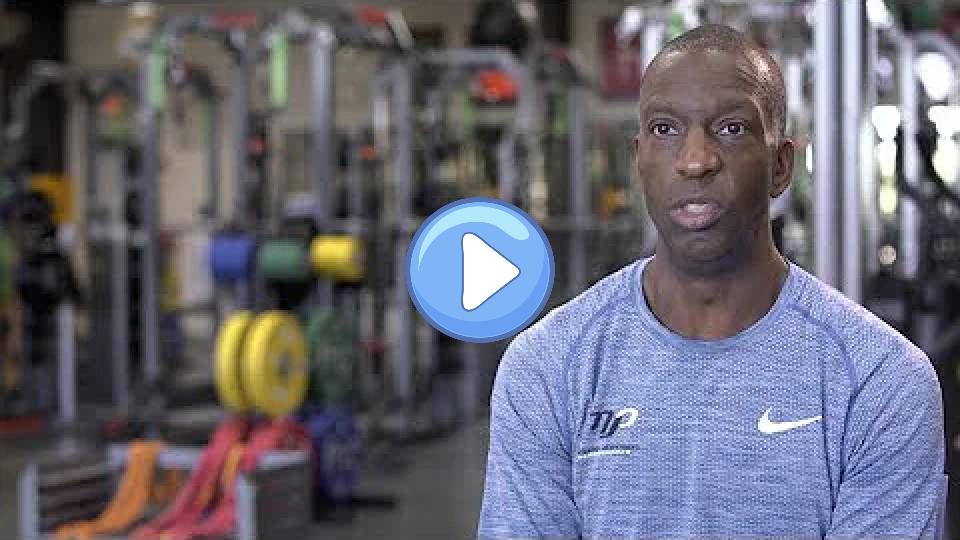Michael Johnson's Sports Injuries
Type of Sport: Track And Field
Michael Johnson's Sports Injuries Table
| Type | Area | Date | Consequences | Content | How It Happened | Recovery Duration | Rehabilitation Details | Impact On Career | Psychological Impact | Previous Injuries | Return To Competition | Severity | Treatment | Medical Staff | Long Term Impact | Preventive Measures | Competition Missed | Initial Symptoms | Re Injury Risk | Support System | Rehabilitation Location |
|---|---|---|---|---|---|---|---|---|---|---|---|---|---|---|---|---|---|---|---|---|---|
| Strains | Left Quadriceps | 1998-06-20 | Limited his participation in the championships. | Michael Johnson strained his left quadriceps during a training session, which impacted his performance in the 1998 US National Championships. | During a training session leading up to the US National Championships. | Approximately 4-6 weeks | Focused on rest, stretching, and gradual reintroduction of training activities. | Temporary performance dip but no lasting career effects. | Maintained a positive outlook despite the setback. | History of minor muscle strains but nothing significant. | Resumed full competition schedule by late summer 1998. | Mild to moderate | Rest, ice, compression, elevation, and physical therapy. | Team physiotherapist and medical staff. | No significant long-term impact noted. | Enhanced warm-up routines and muscle conditioning. | Limited participation in 1998 US National Championships | Discomfort and tightness in the front of the thigh. | Low to moderate, managed with proper care. | Support from coaches, medical staff, and family. | Training facility with access to physiotherapy. |
| Strains | Right Hamstring | 1997-03-22 | Forced to withdraw from the competition. | Michael Johnson suffered a right hamstring strain during the 1997 World Indoor Championships in Paris. This injury prevented him from competing further in the event. | During the 1997 World Indoor Championships in Paris. | Approximately 6-8 weeks | Underwent physical therapy and conditioning exercises to strengthen the hamstring. | Short-term setback, but he recovered to continue his career at a high level. | Mild frustration due to missing the competition but remained determined. | No previous significant hamstring injuries reported. | Returned to competition later in 1997. | Moderate | Rest, ice, compression, and physical therapy. | Team physiotherapist and medical staff. | No significant long-term impact noted. | Increased focus on hamstring strength and flexibility exercises. | 1997 World Indoor Championships | Sharp pain in the back of the thigh. | Moderate, managed with proper rehabilitation. | Support from coaches, medical staff, and family. | Training facility with access to physiotherapy. |
| Tendinitis | Left Achilles Tendon | 2001-05-25 | Significantly affected his training and performance. | Michael Johnson experienced an Achilles tendon injury in 2001, which was a major concern as it jeopardized his training and competition schedule. | During a training session preparing for the 2001 track season. | Approximately 3-4 months | Intensive physical therapy, including strength and flexibility exercises for the tendon. | Contributed to his decision to retire later that year. | Frustration and contemplation about career longevity. | No prior significant Achilles tendon injuries. | Returned briefly but retired later in 2001. | Severe | Rest, ice, anti-inflammatory medication, and physical therapy. | Specialized sports medicine doctors and physiotherapists. | Contributed to the end of his competitive career. | Focus on tendon strength and flexibility training. | Significantly affected 2001 track season. | Sharp pain and swelling in the back of the ankle. | High, especially without proper rehabilitation. | Support from coaches, medical staff, family, and peers. | Specialized sports medicine facility. |
Michael Johnson's Sports Injuries Videos
Olympic Legend Michael Johnson Makes Full Recovery After Terrifying Stroke | TMZ Sports
U.S. Olympic legend Michael Johnson describes his experience of suffering a stroke after a workout, which led to a lack of coordination and numbness on his left side. He quickly went to the emergency room and was diagnosed with a stroke. With the help of specialists, he underwent physical and occupational therapy. Despite the uncertainty of his recovery, Johnson was determined to return to his high level of physical fitness. Within two to three months, he achieved his goal through hard work and support from friends and family. He compares his dedication to his recovery to his training for the Olympics, emphasizing the importance of regaining his active lifestyle.
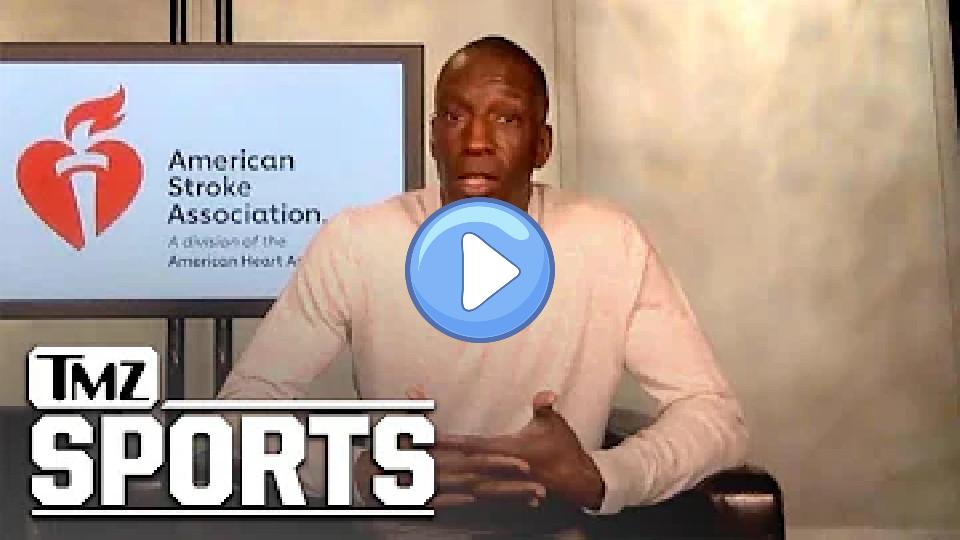
1997 - Donovan Bailey vs. Michael Johnson 150m
The famous 150m race at Skydome Toronto saw Donovan Bailey emerging victorious as Michael Johnson pulled up due to a likely hamstring strain. Bailey's impressive performance on the tight turn indoor track confirmed his status as the world's fastest man. Despite Johnson's injury, Bailey maintained a significant lead and celebrated his victory. Both athletes were guaranteed $500,000 each for participating, with the winner receiving an additional $1 million. The event was widely covered by media, and Bailey expressed confidence in his abilities, challenging Johnson to a rematch.
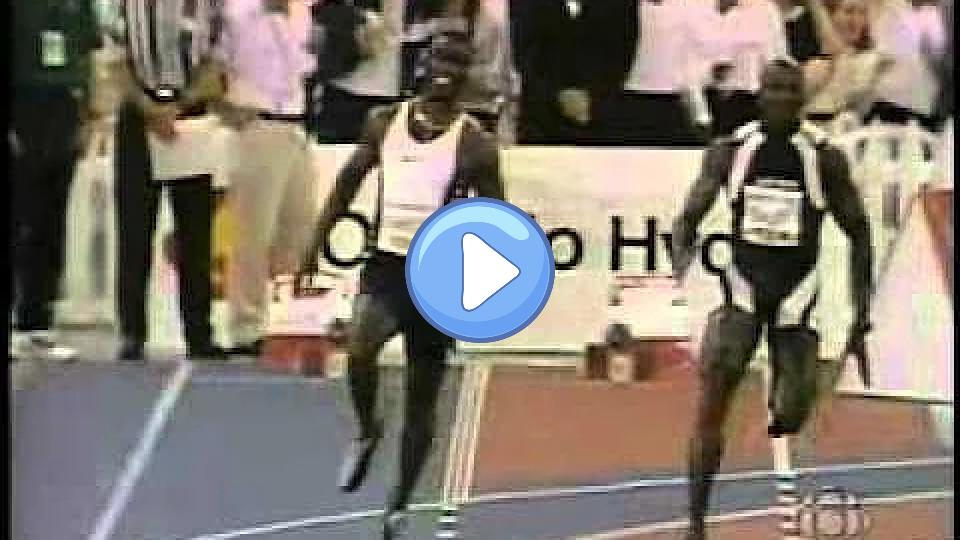
Michael Johnson Sprints to Gold at the 1996 Olympic Games | Gold Medal Moments Presented by Hershey's
American sprinter Michael Johnson wins gold for Team USA at the Olympic Games in Atlanta 1996, showcasing a dominant performance.
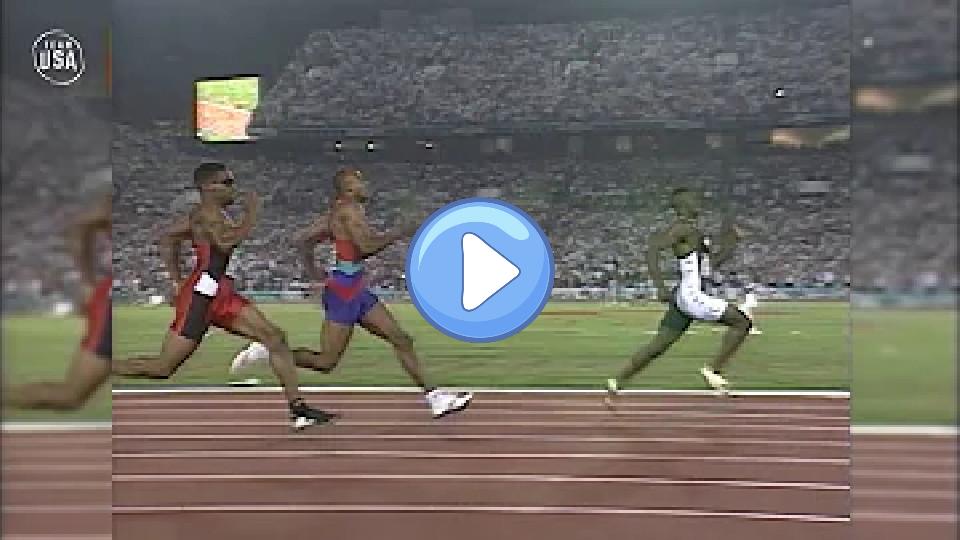
World's Fastest Man: Donovan Bailey & Michael Johnson's 150m Clash
On June 1, 1997, Donovan Bailey and Michael Johnson faced off in a highly publicized 150-meter race in Toronto, which was more like a boxing match than a track meet. Both were Olympic champions with distinct specialties—Bailey in the 100 meters and Johnson in the 200 and 400 meters. The race was born from a rivalry intensified by media and national pride, with a $1.5 million prize for the winner. The event was unsanctioned but drew massive attention. Bailey emerged victorious after Johnson pulled up mid-race with an injury, leading to Bailey's victory and securing him the title of the world's fastest man. Despite the hype, the event did not significantly boost track and field popularity, leaving both athletes with unresolved feelings about the race.
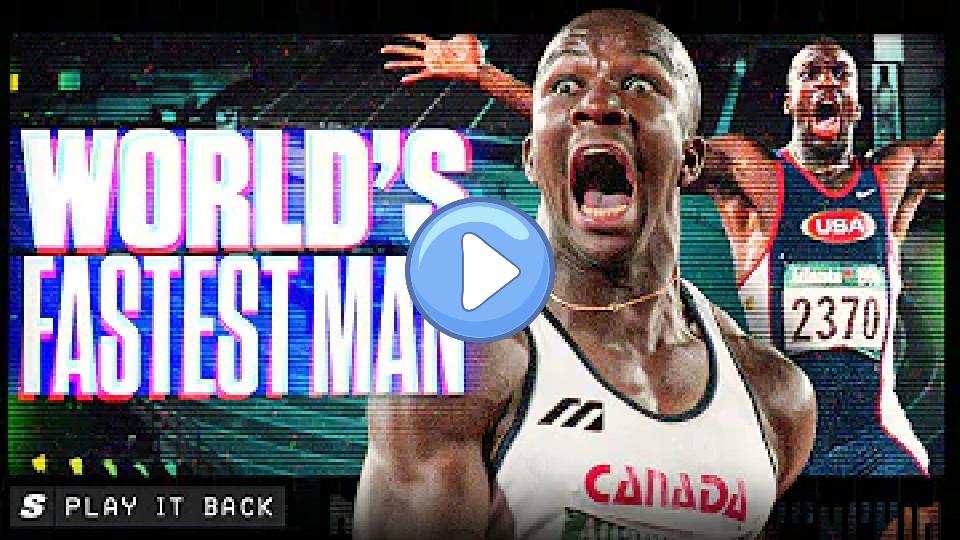
Michael Johnson's Reaction to Bolt's 9.58 Record [HD]
Michael Johnson is amazed after witnessing Usain Bolt's remarkable performance in the 100m final at the Berlin Championships, describing it as the greatest 100m race in history.
![Play video: Michael Johnson's Reaction to Bolt's 9.58 Record [HD] Video thumb: Michael Johnson's Reaction to Bolt's 9.58 Record [HD]](/public/cdn/2024_07/b84ee2c0b7583088e875983a47d05efd.jpg)
Michael Johnson Breaks 200m and 400m Olympic Records - Atlanta 1996 Olympics
Watch all the #Paris2024 action LIVE! ➡️ https://go.olympics.com/watch Michael Johnson became the only man in history to win...
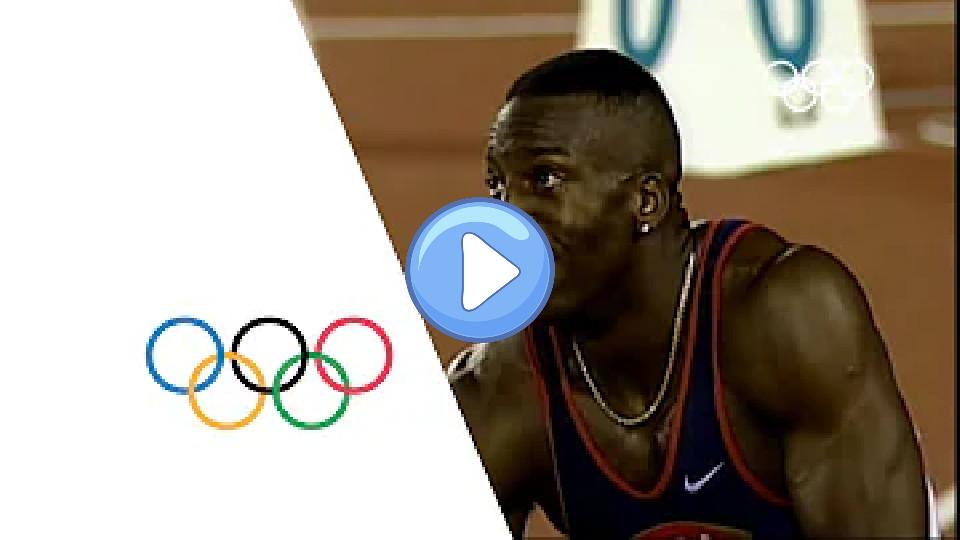
Derek Redmond's Emotional Olympic Story - Injury Mid-Race | 1992 Barcelona Olympics
Derek Anthony Redmond didn't win a medal at the Barcelona Olympics. In fact, the British 400m runner didn't even make it past the finish line.
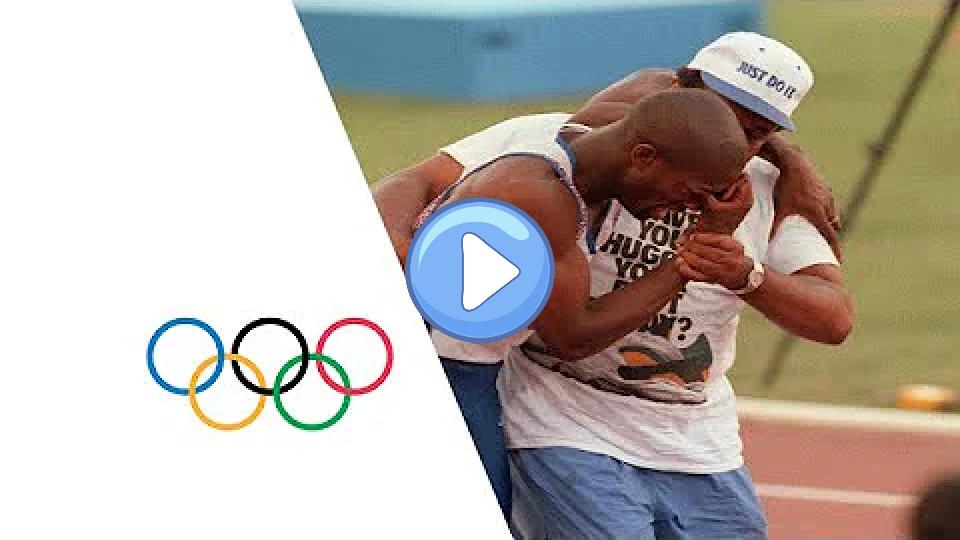
Michael Johnson's Stroke Survivor Story
Olympian Michael Johnson shares his journey as a stroke survivor. Initially unaware of what was happening, he experienced a lack of coordination and tingling, prompting a visit to the emergency room. After a CT scan and MRI, he learned he had a stroke. Despite initial challenges like being unable to walk, Johnson remained optimistic. With guidance from therapists, he relearned to walk and was motivated by his desire to maintain his quality of life and be present for his family. He emphasizes the importance of relaxation and meditation in his recovery and is committed to minimizing future stroke risks.
